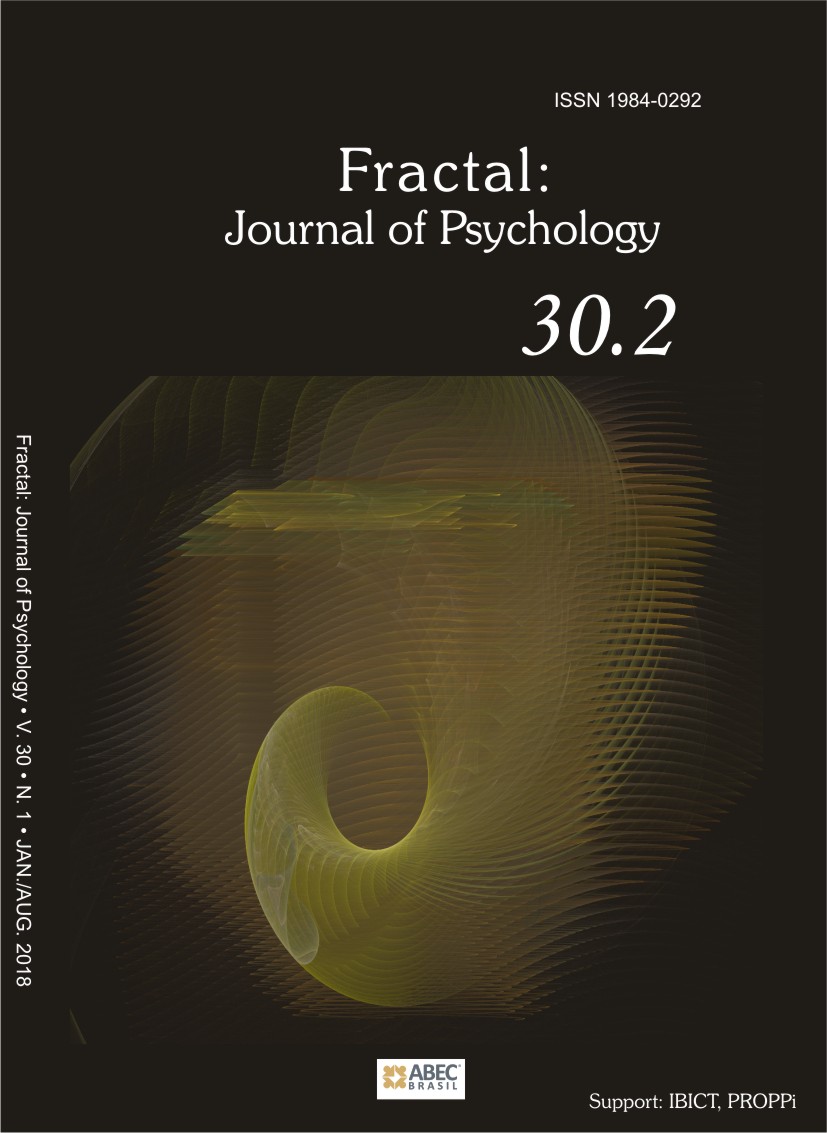The construction of the concept of selfbody on the work of Yves Schwartz
DOI:
https://doi.org/10.22409/1984-0292/v30i2/5877Keywords:
work and organizational psychology, work activity, work and subjectivity, body-self, ergologyAbstract
This article deals with the process of constructing the concept of selfbody in the work of the philosopher Yves Schwartz, seizing human activity as “dramatics use of the body-self.” Seeking to give visibility and systematization to the course of construction of this concept, allusions are made to the way in which Schwartz has critically recaptured the contributions of different authors. It is understood that the concept of selfbody contributes to the understanding of the subjective dimension of work, without offering closed answers, indicating that it is only possible to contribute to the understand and transformation of the work of others, building a partnership that is both an epistemic project as well as the construction of a common society.
Downloads
References
BAKHTIN, M. Os gêneros do discurso. In: ______. Estética da criação verbal. Tradução de Maria Ermantina Galvão G. Pereira. São Paulo: Martins Fontes. 1997. p. 277-326
BARROS, R. B. Grupo: a afirmação de um simulacro. Porto Alegre: Sulina/UFRGS, 2007.
CANGUILHEM, G. O meio e normas do homem no trabalho. Pro-posições. v. 12, n. 2-3, p. 109-121, jul. /nov. 2001.
CANGUILHEM, G. Escritos sobre a Medicina. Rio de Janeiro: Forense Universitária, 2005.
CANGUILHEM, G. O normal e o patológico. 7. ed. Rio de Janeiro: Gen/Forense Universitária, 2011.
CANGUILHEM, G. O conhecimento da vida. Rio de Janeiro: Gen/Forense Universitária, 2012.
CLOT, Y. Trabalho e poder de agir. Belo Horizonte: Fabrefactum, 2010.
DAMÁSIO, A. O erro de Descartes: emoção, razão e cérebro humano. Lisboa: Círculo de Leitores, 2011.
DEJOURS, C. Inteligência operária e organização do trabalho: a propósito do modelo japonês de produção. In: HIRATA, H. (Org.). Sobre o modelo japonês. São Paulo: EDUSP, 1993. p. 281-309.
DEJOURS, C. Trabalho vivo: sexualidade e trabalho. Brasília: Paralelo 15, 2012. v. 1.
MENCACCI, N.; SCHWARTZ, Y.; Diálogo 1. Trajetórias e uso de si. In: SCHWARTZ, Y.; DURRIVE, L. (Org.). Trabalho e Ergologia II: diálogos sobre a atividade humana. Belo Horizonte: Fabrefactum, 2016. p. 17-53.
NIETZSCHE, F. Assim falou Zaratustra. São Paulo: Companhia das Letras, 2011.
RABARDEL, P.; PASTRÉ, P. (Org.). Modèles du sujet pour la conception: dialectiques activités dévelopement. Toulouse: Octarès, 2005.
SCHWARTZ, Y. De l’inconfort intellectuel, ou: comment penser les activités humaines? In: COURS-SALIES, P. (Coord.). La liberté du travail. Paris: Syllepse, 1995. p. 99-149.
SCHWARTZ, Y. Os ingredientes da competência: um exercício necessário para uma questão insolúvel. Educação e Sociedade, Campinas, v. 19, n . 65, p. 101-139, dez. 1998.
SCHWARTZ, Y. Trabalho e uso de si. Pro-posições, Campinas, v. 1, n. 5 (32), p. 34-50, jul. 2000a.
SCHWARTZ, Y. Conclusion générale: ergologue est-ce um métier? In: ______. Le paradigme ergologique ou un métier de Philosophe. Toulouse, Octarès, 2000b. p. 641-738
SCHWARTZ, Y. Anexo ao capítulo 1. Reflexão em torno de um exemplo de trabalho operário. In: ______. DURRIVE, L. (Org.). Trabalho e ergologia: conversas sobre a atividade humana. 2. ed. Niterói: EdUFF, 2010a. p. 37-46.
SCHWARTZ, Y. Trabalho e uso de si. In: ______. DURRIVE, L. (Org.). Trabalho e ergologia: conversas sobre a atividade humana. 2. ed. Niterói: EdUFF, 2010b. p. 189-204.
SCHWARTZ, Y. Qual sujeito para qual experiência? Revista Tempus Actas de Saúde Coletiva - O Trabalho em Saúde, Brasília, v. 5, n. 1, p. 55-67, 2011. Disponível em: http://www.tempusactas.unb.br/index.php/tempus/article/view/916. Acesso em: 20 maio 2017.
SCHWARTZ, Y. Motivações de conceito de corpo-si: corpo-si, atividade, experiência. Letras de Hoje, Porto Alegre, v. 49, n. 3, p. 259-274, jul./set. 2014.
SCHWARTZ, Y.; ECHTERNACHT, E. Le corps-soi dans les millieux de travail: comment se spécifie sa compétence à vivre? Corps, n. 6, p. 31-37, 2009.
SCHWARTZ, Y.; VENNER, B. Diálogo 2. Debates de normas, “mundo de valores” e engajamento transformador. In: ______. DURRIVE, L. (Org.). Trabalho e Ergologia II: diálogos sobre a atividade humana. Belo Horizonte: Fabrefactum, 2016. p. 55-149.
WISNER, A. Inteligência no trabalho: textos selecionados de ergonomia. São Paulo: Fundacentro, 1994.
Downloads
Published
How to Cite
Issue
Section
License
Authors publishing in this journal agree to the following terms:
- Authors retain copyright and grant the journal the right of first publication, with the work simultaneously licensed under the Creative Commons Attribution License allowing sharing of the work with acknowledgement of authorship of the work and initial publication in this journal.
- Authors are permitted to enter into additional contracts separately for non-exclusive distribution of the version of the work published in this journal (e.g., publishing in an institutional repository or as a book chapter), with acknowledgment of authorship and initial publication in this journal.

This work is licensed under a Creative Commons Attribution 4.0 International License.
To the extent possible under the law, Fractal: Journal of Psychology has waived all copyright and related rights to the Reference Lists in research articles. This work is published in: Brazil.
To the extent possible under law,Fractal: Journal of Psychology has waived all copyright and related or neighboring rights to Reference lists in research articles. This work is published from: Brazil.







